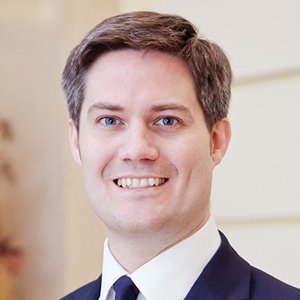Quantum Computing brings together several scientific disciplines: computer science, physics, and mathematics. The main aim is to be able to solve complex problems faster than using classical computers. The basic unit of information in quantum computing is the qubit (or quantum bit); it serves an equivalent function as the bit in classical computing. There is much more to it, of course, the detail of which goes beyond a basic explainer. For our purposes, we can simply note that a qubit can exist in more than one state; this is something we learn from quantum mechanics, and this is why we call it quantum computing. The interface of power (energy) and matter is what makes quantum computers so different to classical computers, and why their processing power is far greater. However, the greater power consumption has consequences for energy costs and for temperature control; indeed, keeping them cool has its costs and challenges too.
What is quantum computing used for?
Creating true quantum computers is challenging. They are expensive investments, and some have suggested that, so far, they are of limited application, although most accept that quantum computing has significant potential applications (for example, in the fields of cryptography and cybersecurity) to encrypt, and also to undermine encryption. This is because quantum computing can break cryptography schemes which rely on the difficulty of factoring large numbers. A considerable risk is that data protected by the current generation of cryptographic tools, which has been obtained via cyber breaches over the years (including those backed by hostile nation states) could one day be decrypted using quantum tools.
Perhaps its greatest potential use is in how it can transmit data securely. A quantum state can establish secure cryptographic keys, so that senders and receivers do not need to fear interception of messages. The computing power of quantum can also greatly enhance machine learning and, therefore, development of AI. Read more about the use and regulation of AI here.
Cryptographic protections will need to evolve if they are to remain effective for maintaining secure access to data; so-called post-quantum cryptographic tools are a key focus for today’s quantum research.
Who is leading the development of quantum computing?
Government is investing in, and considering legislation, but thus far, most law that impacts quantum computing concerns the investment and planning for them. The UK, EU and US have all invested in the development of such computers. The UK has created the National Quantum Computing Centre (NQCC), opened by Lord Vallance in October 2024, which is intended to help both government and business. The centre is meant to translate research into innovation. Much of its activity is taking place at the Harwell campus in Oxfordshire, which dates to the 1940s and research into energy technology, but today hosts a collaboration between government, academia and industry working to accelerate a broader range of innovation. There are 12 quantum computers in development at the NQCC’s Harwell site; 8 are led by private companies and 4 by NQCC scientists.
The EU’s lead project is the European Quantum Communication Infrastructure (EuroQCI). It started in 2019 and aims to create a secure quantum communication infrastructure spanning all 27 EU Member States. The European Commission and the European Space Agency have been working on how to design, develop and deploy the EuroQCI. The first implementation phase began in January 2023, and the aim for the ‘space’ phase is 2025 or perhaps 2026. The US strategy was established under President Trump in 2018 with his National Quantum Initiative Act (NQIA). The NQIA aims to explore and promote quantum information science (QIS). The NQIA calls for a coordinated federal program to accelerate quantum research and development for the economic and national security of the United States. The Biden administration continued investment in quantum research, including support for post-quantum cryptographic standards developed by the National Institute for Standards and Technology (NIST), and it is assumed that the new Trump administration will continue with support.
Governments clearly are interested – and invested – in quantum computing. The innovations and inventions it may lead to then require suitable legal protection and exploitation via intellectual property (IP) rights. Whether the innovation is better suited to protection by patent, copyright, or perhaps by way of confidentiality, depends on what has been created and how it might be best exploited, so do consider taking professional advice at the start of your research to ensure that you can protect and exploit the outcome later. The need to collaborate, for example, could mean disputes over entitlement to inventions and ownership of datasets, so it is key to understand who will own what and if there are to be licences. Advice on this early on can save you a lot later.
As noted earlier, another area of legal consideration is in consequence of the likely use of quantum computing in cyber security. Many laws and regulations require appropriate security arrangements, but in the age of quantum computing what is appropriately secure can quickly alter. Keeping up with what constitutes the appropriate technical or organisational measure for a product could be a full-time endeavour. If the great leap forward in technology is presented effectively to law makers, regulators or judges, what is ‘reasonable’ is likely to evolve, and businesses will need to be able to justify the level of investment and security they adopt.
Our advice is to remain alert to the evolving risk landscape; in your reviews of your IT cyber security preparedness, at least be considering the impact of quantum, and how you can justify the levels of protection you maintain. If you have the investment ability and appetite to explore quantum computing opportunities, then take advice early on the potential IP rights which may arise and think about who should own what from any collaborative work.
If you have questions about quantum computing, please contact Robert Peake and James Tumbridge
This article is for general information purposes only and does not constitute legal or professional advice. It should not be used as a substitute for legal advice relating to your particular circumstances. Please note that the law may have changed since the date of this article.


